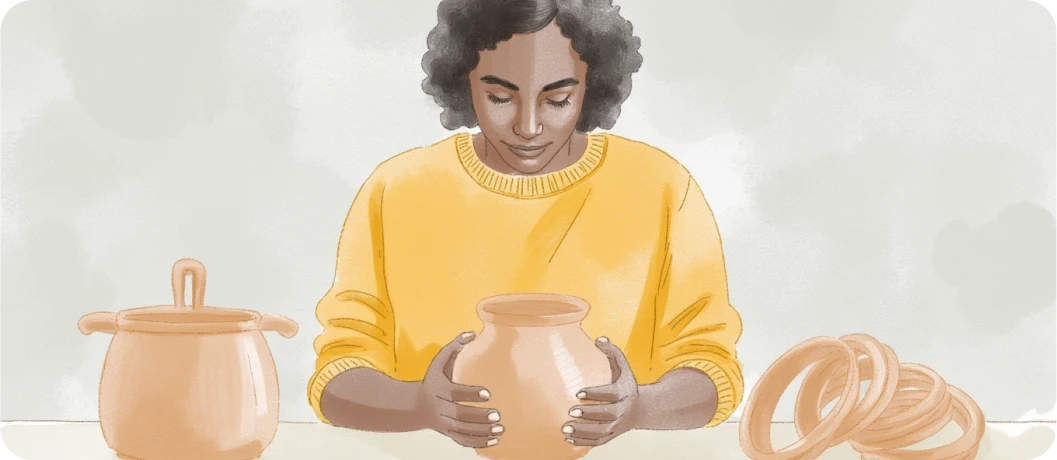Strictness or softness? Authoritarianism or permissiveness? There are supporters of different behaviors with children. According to researchers, there are four main parenting styles: authoritarian, permissive, neglectful, and authoritative [1]. Which one is yours? Let’s take a parenting style quiz to find out.
Parenting Quiz
Choose the one answer that best corresponds to your usual parenting behavior.
1. Your child is playing games on the phone instead of completing some errand that needs to be done immediately. You:
a) turn off the TV without saying a word.
b) complete the task instead of them.
c) may get angry at first, but then you will think, “Let them do what they want…”
d) ask calmly what they need to start fulfilling this task.
2. The child is difficult at the table, refusing to eat what they always ate. You:
a) make them eat what you have prepared.
b) repeatedly ask them to eat and offer a variety of dishes.
c) let them go hungry, and do not stress over this.
d) offer another dish or allow them to leave the table.
3. If your child came from school with a low grade. You:
a) will be angry and make them do extra assignments or tutoring to improve their results.
b) say: “It’s not important. You are still the best”.
c) don’t pay attention because you don’t have time for it.
d) go drink tea together, let your child know you always love them, and think over the solution to the problem together.
4. Your child tells you they had an argument with a friend. You:
a) tell them what they did wrong and how they should behave next time.
b) say, “Don’t worry, just forget about it,” and change the subject.
c) don’t engage — they’ll figure it out themselves.
d) listen carefully, validate their feelings, and guide them in thinking through possible solutions.
5. Your child interrupts you during an important phone call. You:
a) harshly silence them and send them out of the room immediately.
b) smile and allow them to interrupt — they’re just being kids.
c) ignore them or let them figure out on their own that you’re busy.
d) explain that the conversation is important and promise to talk with them right after.
6. Your child starts crying because they can’t solve a puzzle. You:
a) say, “Stop crying and focus. You need to finish what you started.”
b) take the puzzle away and distract them with something fun.
c) let them cry — it’s their problem, not yours.
d) sit with them, offer encouragement, and help only if they ask.
7. Your child wants to stay up late watching a movie on a school night. You:
a) strictly say no and send them to bed immediately.
b) let them stay up — it’s just one night, after all.
c) don’t notice or care what time they go to sleep.
d) explain why sleep is important and agree to finish the movie together on the weekend.
Parenting Styles Quiz Results
Now, let’s identify your own parenting style. Look at what letter you choose most often and discover the quiz result.
A’s: authoritarian parenting style
In an authoritarian parenting style, all decisions are made by the parents as authority figures. Usually, authoritarian parents limit the child’s independence, considering it unnecessary to explain their rules to the children. Their word is the law, and it can not be discussed or challenged. They may also have high expectations of the children and often use punishment to shape certain behaviors [2].
Children of authoritarian parents may grow up dependent, have low self-esteem, and lack initiative. Some become very independent because they don’t want to burden others or be negatively judged if they make a mistake. Such behavior is also typical of children of narcissistic parents. In adulthood, such children may think, “Why is everyone so mean to me?“.
Sound familiar? If this was your parents’ behavior pattern, you may be wondering if it could affect your life. Take this free childhood trauma test to find out.
If you notice these patterns in your parenting, small changes can make a big difference. Try explaining the reasoning behind your rules to help children feel respected and included.
B’s: Permissive parenting style
The main feature of this parenting style is excessive parental care for their child, overprotection, as well as actions that contribute to “making life easier.” Such parents satisfy children’s whims, relieve them of the slightest challenges, exaggerate the child’s talents, and have almost no rules.
Growing up in such a family, a child may acquire such character traits as self-centeredness, a tendency to outbursts of aggression, difficulties with discipline, and the inability to control their emotions.
If you recognize these patterns in your parenting style, try to set consistent boundaries and follow through with consequences when needed. Encourage your child to solve small problems on their own. This, in turn, may help build confidence and help them learn that frustration and failure are parts of learning and growth.

C’s: Neglectful parenting style
Usually, if parents adhere to this style of upbringing, they rarely know what their children are doing or how they are feeling in a given moment. They may ignore the child’s needs and desires, being emotionally indifferent.
Sometimes, they may believe that by being distant and uninvolved, they promote the independence of the child. To compensate for their absence in a child’s life, they may “pay off” with expensive gifts or trips. Therefore, such children may feel abandoned, thinking, “Why do I hate my birthday?”.
As adults, they may have difficulties setting boundaries and get into toxic friendships or abusive relationships. They may find themselves constantly seeking love or approval because they didn’t receive enough of that when it was most important.
If you see yourself in this pattern, even small efforts to reconnect can make a lasting impact. Show interest in your child’s world regularly, ask questions, and listen actively. Creating daily routines can help your child feel seen, valued, and supported.
If you want to change your daily habits, the Breeze app can help you with it. The app offers simple yet powerful routines to help you build new healthy habits. Another benefit of using Breeze is a better understanding of your emotions and higher emotional intelligence. The app provides journaling prompts for deeper self-reflection and releasing worries.
Breeze also offers self-discovery tests to help you learn more about various aspects of your personality and personality types of others. You can gain a better understanding of yourself and your behavior with informative quizzes on relationships, childhood trauma, career, and many more.
D’s: Authoritative parenting style
Such parents give guidance to their children while being warm and emotionally available, and providing support. They explain the rules to their children and are ready to discuss them, changing them, if the child can offer reasoning. The child is given the freedom to deal with the consequences of their own choices and desires. Such parents raise children with a sense of freedom, from the choice of clothes to the choice of a future job.
Research on authoritative parenting shows that this parenting style contributes to further life satisfaction in young people [3]. Parents who adhere to this parenting style tend to be the most effective, attentive, and warm. They are always ready to give advice, support in a difficult situation, and share their knowledge and experience.
In such a family, the child understands that their opinion matters, and is more likely to grow up independent and self-confident, socially adapted and able to make reasonable decisions and achieve success.
Expert Insight
There is no one single parenting approach that works best for all parents. However, it’s important for parents to reflect and consider what attunes well with their child. You want to focus on striking a balance where you have set policies and boundaries, along with giving the child freedom to truly be themselves. This doesn’t come down to a specific formula – instead, it requires tuning into your family structure and the needs of your child.
Nicole Arzt
Mental health professional
Tip from Mental Health Professional
Here are practical steps to apply authoritative parenting in everyday life:
1. Practice Active Listening. Ask open-ended questions like: “How did that make you feel?” or “What do you think is a fair solution?”
2. Encourage Independence Within Limits. Support your child in making age-appropriate decisions to build confidence and decision-making skills. Let them choose their clothes or plan a weekend activity, but provide guidance if needed.
3. Set Clear Boundaries and Explain Them. For example, instead of saying, “Because I said so,” try: “You need to finish your homework before playing because schoolwork helps you learn responsibility.”
Expert Insight
Focus on your non-negotiables first. These set the framework for the main rules you want to uphold as a parent. Once kids really know these can’t be changed, they can focus on areas in which they can practice freedom, control, and independent decision-making. From there, it’s important for you to give your kids space to express themselves and take chances, even if it means making mistakes.
Nicole Arzt
Mental health professional
Sources
- Ariana Awiszus, Melissa Koenig, Julie Vaisarova. Parenting Styles and Their Effect on Child Development and Outcome. August 2022.
- Kuppens S, Ceulemans E. Parenting styles: A closer look at a well-known concept. September 2018.
- Lavrič M, Naterer A. The power of authoritative parenting: A cross-national study of effects of exposure to different parenting styles on life satisfaction. September 2020.
Disclaimer
This article is for general informative and self-discovery purposes only. It should not replace expert guidance from professionals.
Any action you take in response to the information in this article, whether directly or indirectly, is solely your responsibility and is done at your own risk. Breeze content team and its mental health experts disclaim any liability, loss, or risk, personal, professional, or otherwise, which may result from the use and/or application of any content.
Always consult your doctor or other certified health practitioner with any medical questions or concerns
Breeze articles exclusively cite trusted sources, such as academic research institutions and medical associations, including research and studies from PubMed, ResearchGate, or similar databases. Examine our subject-matter editors and editorial process to see how we verify facts and maintain the accuracy, reliability, and trustworthiness of our material.
Was this article helpful?






